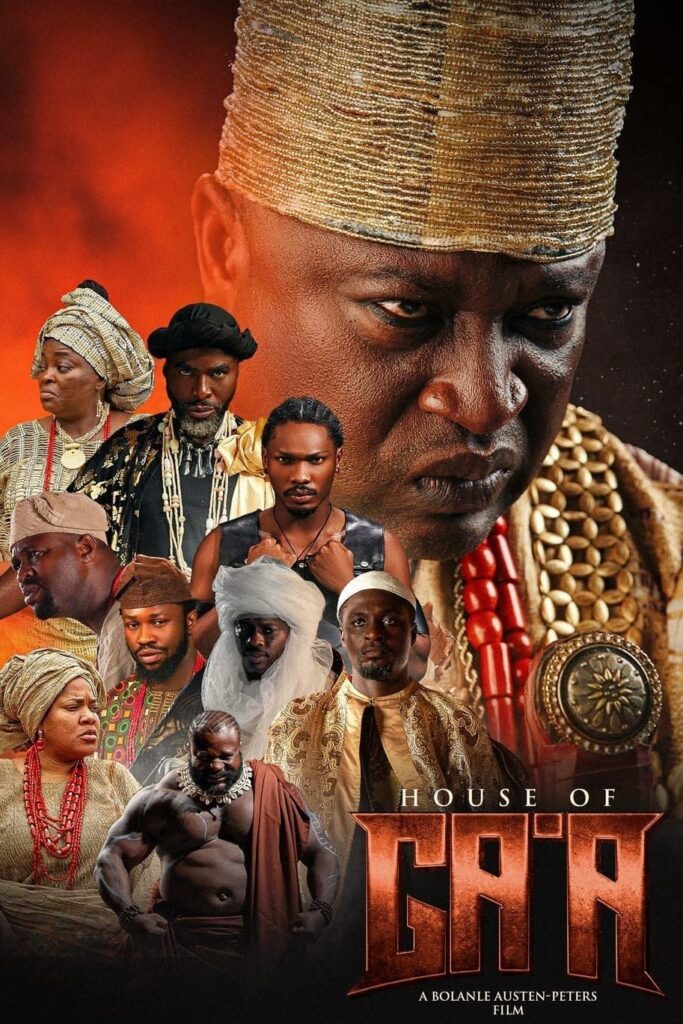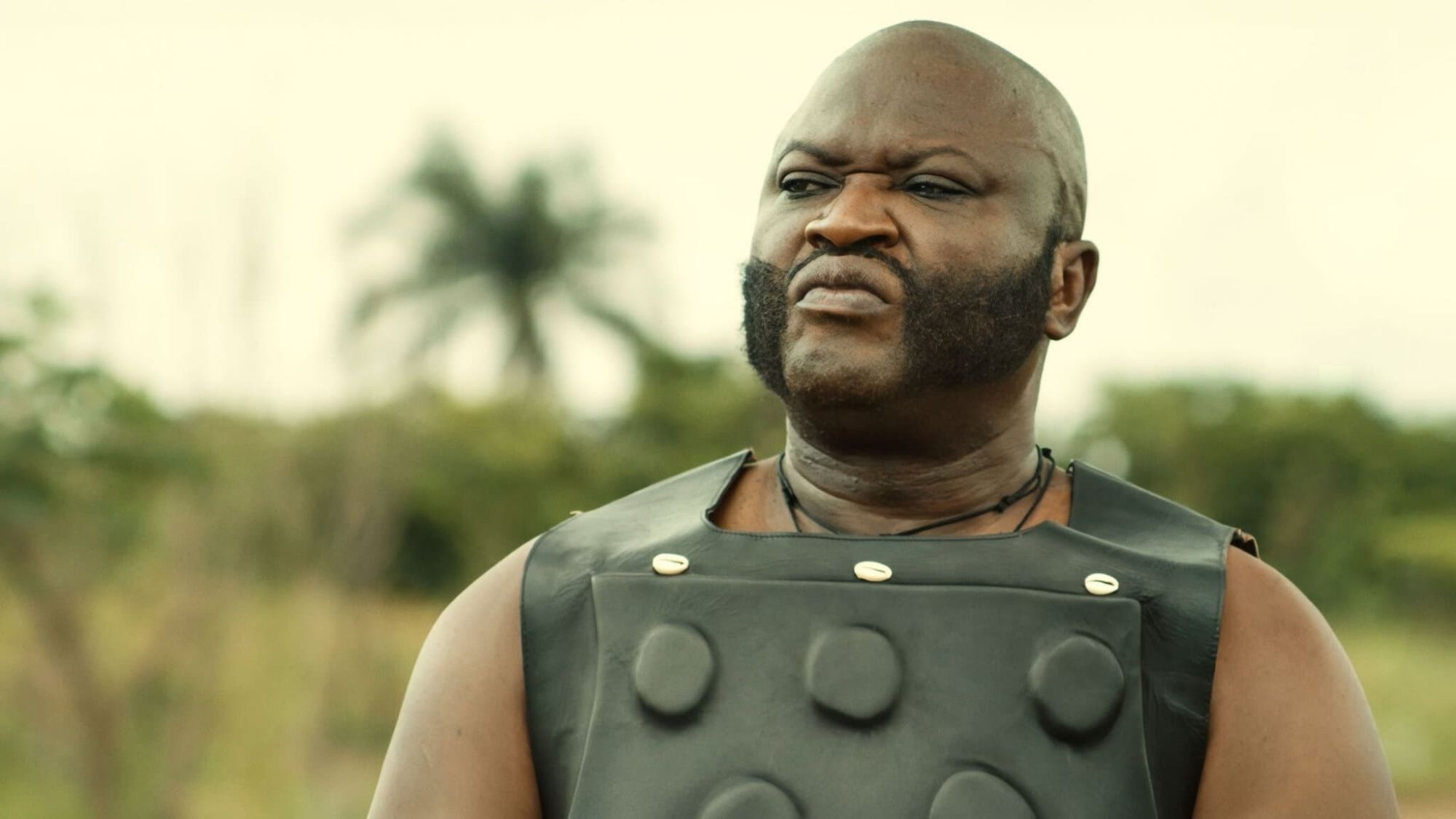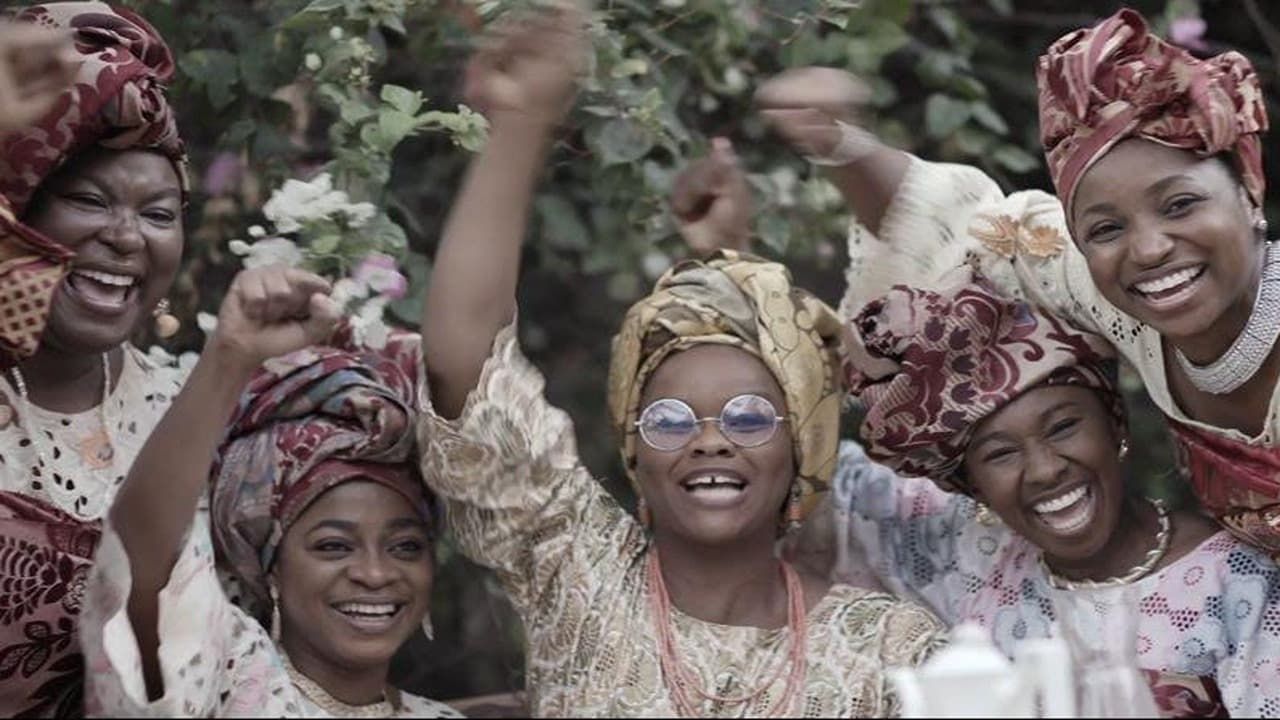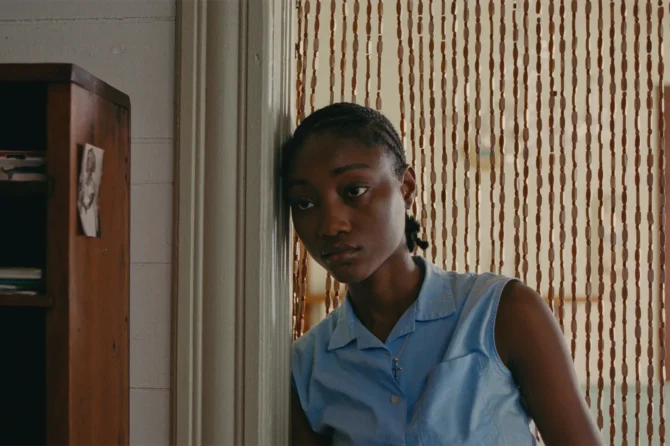As the first act opens up and you feel the intensity of battle, along with the vigor of Bashorun Ga’a’s soldiers, you are left with a singular feeling – I am in for one heck of a story.
Bolanle Austen-Peters manages to craft a consistently intense atmosphere in a movie that will not be easily forgettable due to its portrayal of the Yoruba pre-colonial political system and the masterful performances by the cast. From the A-list line-up, to the intensity of the plot, to the historical significance, House of Ga’a is an invigorating cultural statement, the first of its kind in Austen-Peters’ filmography.

House of Ga’a tells the story of Bashorun Ga’a (Femi Branch) as narrated by Oyemekun, one of Ga’a’s sons (Mike Folarin). Ga’a is a renowned warrior whose battle victories earn him the love of the people and eventually, his position as the Bashorun. Upon his appointment, he gets straight to crafty work and places his children in positions of authority all over the kingdom. He doesn’t stop there. The legendary warrior becomes power-hungry and steps on all the wrong toes, leaving dead bodies in his wake. This continues until he meets his match in Alaafin Majeogbe (Dele Odule) who refuses to cower to Ga’a’s intimidation. Alaafin Majeogbe provides the first real threat to Ga’a’s tyranny before Ga’a eventually prevails at great cost. It is at this point that the real trouble begins.
Oyemekun, son of Ga’a, is twice scorned by his father. Firstly, when his father orders the marriage of his sweetheart, Agbonyin (Bridget Nkem), to his uncle. Upon his uncle’s death and the appointment of Agbonyin’s father, Abiodun, as Alaafin Majeogbe’s successor, Oyemekun hopes to finally take his beloved as wife but Ga’a has other plans. His actions twist Oyemekun into a ball of bitterness, pitting him against his father who has also inspired the wrath of Abiodun (Adeniyi Johnson) and the rest of the Kingdom.
The first and second acts of House of Ga’a are characterized by a steady rise in anticipation. The pacing of the movie hops from one key event to the next, with the 2-hour runtime speeding by without your notice. With each heated Oyo Mesi meeting, each furious show of frustration from Ga’a, and every clash of a warrior’s sword, you find yourself waiting for what comes next in this twisted tale of tyranny. However, despite all of the built momentum, the climax crashes into a very unsatisfying finish.
A great part of the movie’s momentum is built by setting up specific characters. There is Zeinab, Oyemekun, and even Ga’a’s brother, the one played by Lateef Adedimeji. They are all placed on the board as players to be closely watched. Zeinab (Tosin Adeyemi) is a captured slave who eventually becomes Ga’a’s wife. We also spend a great part of the story watching Oyemekun grow into a capable warrior. And there is the black sheep brother whose contant falling out with Ga’a teases an imminent recoil. Their characterizations are matched and bolstered by the creeping feeling that something big would eventually happen to Ga’a’s household; and while something big does happen, Ga’a’s demise leaves the tension hanging by failing to follow through with the buildup of Oyemekun’s arc, and failing to establish the significance of Zeinab’s character. She rises into prominence as Ga’a’s wife, only to remain irrelevant in the grand scheme. When the household is about to be toppled, she does nothing that fulfills a character’s narrative journey.
As for Oyemekun, his character could be described as the most disappointing part of the movie’s plot. Ga’a is the center of the story, the protagonist. However, Oyemekun is framed as the movie’s hero. All through the film you would find yourself waiting for his awakening, only to realize that he would end up doing nothing of any real effect. The failure of the plot to tie up Oyemekun’s build up in a climactic finish lays waste to the pressure that the movie’s pacing had been mounting on the character since the beginning of the film.
The ending of House of Ga’a would have been a satisfying finish if not for the seamlessness of it. Ga’a’s fate was on a downward spiral right from the beginning of the movie when the power started to get to his head. However, just like Oyemekun, his character is built up too high only to be done away without much of a fuss. Ga’a’s tragic flaw ends up taking too much of the spotlight and eventually overshadows other aspects of his character, namely his experience, strength, and battle acumen. While he is weakened and caught by surprise, it is hard to watch his house crumble without entertaining the thought that the final showdown occurs too easily. Ga’a’s unsatisfying but poetically justified end is only made worse by the fact that we are never really taken through convincing circumstances that led to his villainy.
In a nutshell, House of Ga’a, a historical Yoruba language film, is one that is defined by great acting, electric atmosphere, and ultimately undercooked characters. Judging from the star-studded cast, the numerous plot lines, the artistic performances, and the bold exploration of Yoruba royalty and culture, House of Ga’a is a movie that sets out to make a mark in different departments. While it does succeed in achieving some of this, it loses its grip on the plot’s momentum and characterization. As the end credits roll, you are left with a new feeling —That might have been one heck of a story, but it felt like an incomplete tale.
House of Ga’a premiered on Netflix on July 26, 2024.
Share your thoughts in the comments section or on our social media accounts.
Keep track of upcoming films and TV shows on your Google calendar.
Side Musings
- How does every culture in this movie suddenly know how to speak Yoruba?
- Surely a ritual herbalist would have at least had some form of fortification against attacks. It shouldn’t have been so easy for Oyemekun to kill Sasa.
- What really was the point of showing us a ritual ceremony in which Ga’a was imbued with what seemed like extra abilities if he was never going to use them extensively?




